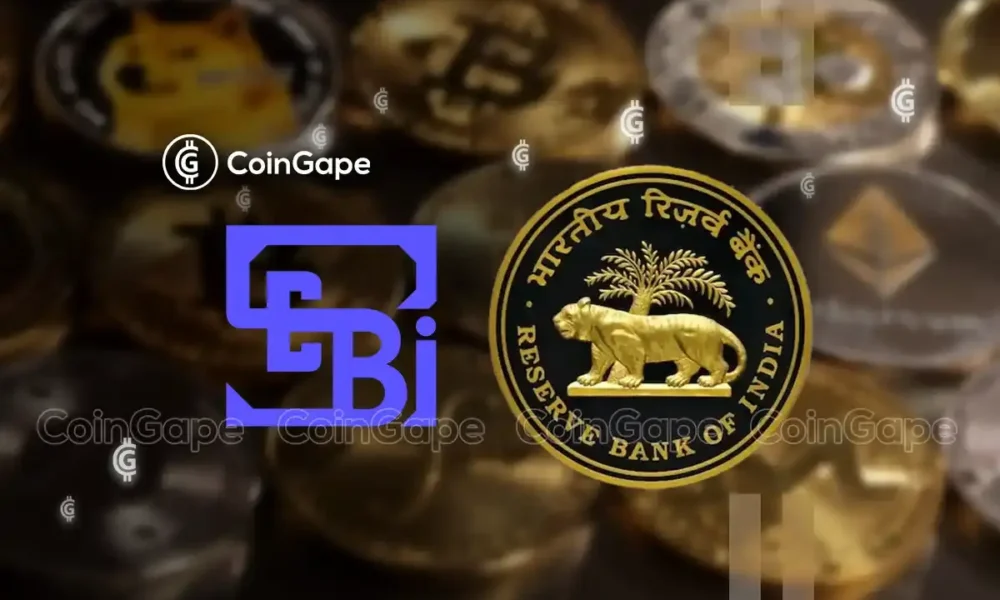Regulation
RBI, SEBI team up to frame India’s cryptocurrency policy, paper expected in Q3

India’s Cryptocurrency Policy: The Reserve Bank of India (RBI) and the Securities and Exchange Board of India (SEBI) have joined an inter-ministerial group to formulate a comprehensive policy on cryptocurrencies. The collaboration marks a potential turning point in their stance on cryptocurrencies, with a discussion paper outlining the government’s position expected to be released in the third quarter of 2024.
Crypto Policy Making and Regulatory Collaboration in India
India’s financial regulators RBI and SEBI join forces with other government agencies to develop India crypto Economic Affairs Secretary Ajay Seth revealed in an interview that a discussion paper outlining their position on cryptocurrencies is expected to be released before September 2024.
The paper aims to gather stakeholder feedback on potential regulations for India’s crypto policy. Seth explained that the current regulatory approach focuses only on fight against money laundering (AML) and Counter-Terrorism Financing (CTF) measures, which were extended to crypto assets and intermediaries in March 2023.
An inter-ministerial group, comprising the RBI and SEBI, is working on a broader policy framework. The development follows their G20 presidency in 2023, during which member countries endorsed guidelines set by the International Monetary Fund (IMF) and the Financial Stability Board (FSB).
The discussion paper will address key questions on policy stance and regulatory scope. It comes amid divergent views among Indian authorities, with SEBI reportedly open to allowing private virtual asset trading, while the RBI remains concerned about macroeconomic risks.
The move marks a significant step in their approach to cryptocurrencies, following the Supreme Court’s 2020 decision to strike down the RBI’s 2018 ban on crypto-related financial services. The government’s position has evolved since 2021, when a bill proposing a ban on private cryptocurrencies was drafted but never introduced.
The upcoming discussion paper is expected to align with the G20-endorsed IMF-FSB framework, which advises against blanket bans on cryptocurrency activities. This development signals their shift toward a more nuanced and potentially inclusive approach to cryptocurrency. Cryptocurrency Regulation.
Read also : Steve Forbes Says Kamala Harris’ Policies Will Ruin the Middle Class
Divergent views on regulation and market impact
SEBI has been open to allowing private virtual asset trading, recommending that multiple regulators oversee it cryptocurrency trading nationwide in May. This stance contrasts with the RBI’s historically tighter grip on cryptocurrencies and its ongoing concerns about macroeconomic risks.
However, SEBI’s recommendation has gained traction among crypto market participants, which could signal a more inclusive approach to crypto regulation. This development has created a state of anticipation in the market as it represents a potential shift from the RBI’s long-standing restrictive stance on cryptocurrencies.
The upcoming discussion paper and resulting policy framework are expected to take these different views into account and establish a balanced approach to cryptocurrency regulation in the country.
Read also : Bitcoin ETF Inflows Surge as Ether ETF Loses $133M on Hype Shift
